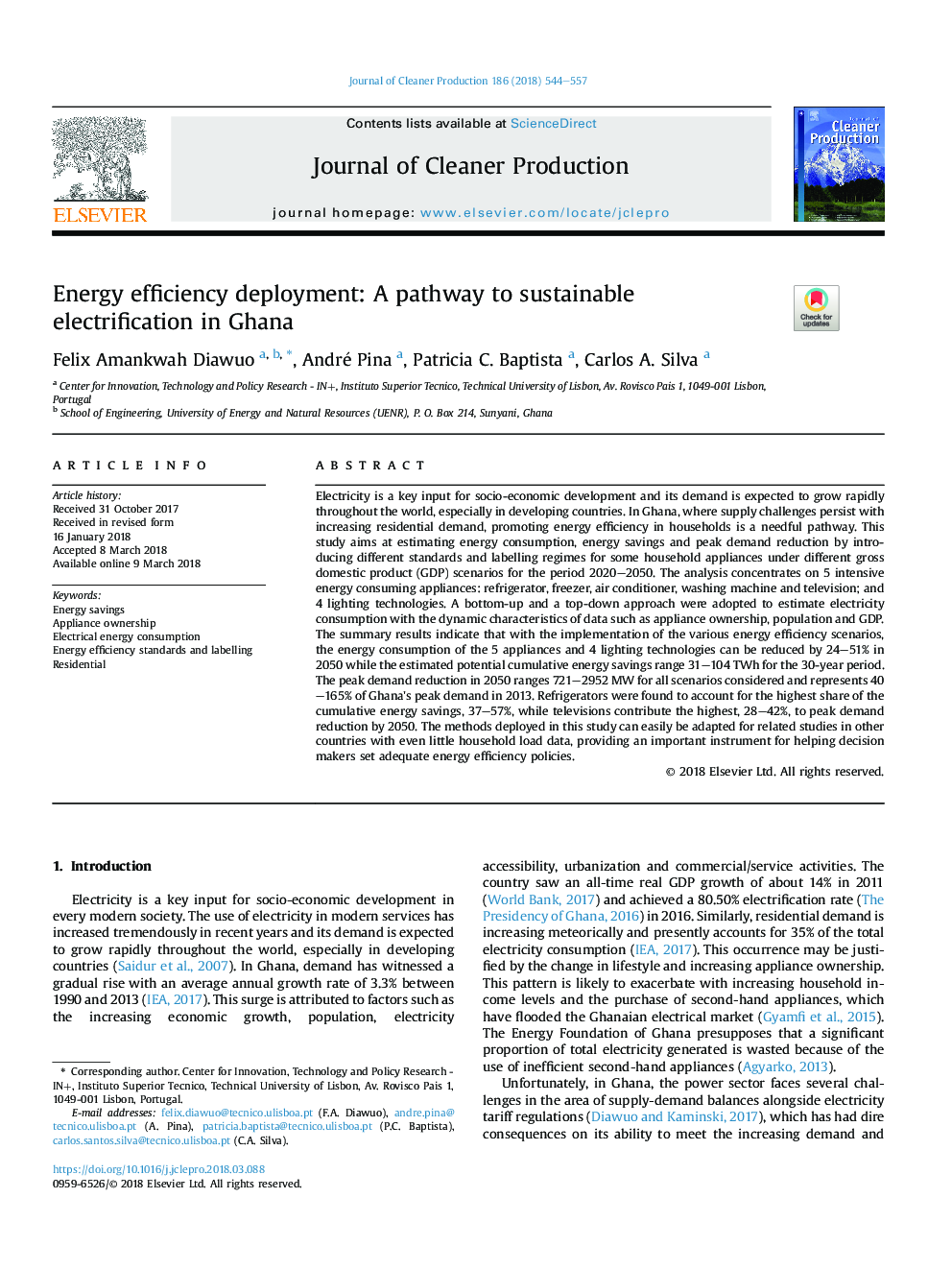| Article ID | Journal | Published Year | Pages | File Type |
|---|---|---|---|---|
| 8096239 | Journal of Cleaner Production | 2018 | 14 Pages |
Abstract
Electricity is a key input for socio-economic development and its demand is expected to grow rapidly throughout the world, especially in developing countries. In Ghana, where supply challenges persist with increasing residential demand, promoting energy efficiency in households is a needful pathway. This study aims at estimating energy consumption, energy savings and peak demand reduction by introducing different standards and labelling regimes for some household appliances under different gross domestic product (GDP) scenarios for the period 2020-2050. The analysis concentrates on 5 intensive energy consuming appliances: refrigerator, freezer, air conditioner, washing machine and television; and 4 lighting technologies. A bottom-up and a top-down approach were adopted to estimate electricity consumption with the dynamic characteristics of data such as appliance ownership, population and GDP. The summary results indicate that with the implementation of the various energy efficiency scenarios, the energy consumption of the 5 appliances and 4 lighting technologies can be reduced by 24-51% in 2050 while the estimated potential cumulative energy savings range 31-104 TWh for the 30-year period. The peak demand reduction in 2050 ranges 721-2952â¯MW for all scenarios considered and represents 40-165% of Ghana's peak demand in 2013. Refrigerators were found to account for the highest share of the cumulative energy savings, 37-57%, while televisions contribute the highest, 28-42%, to peak demand reduction by 2050. The methods deployed in this study can easily be adapted for related studies in other countries with even little household load data, providing an important instrument for helping decision makers set adequate energy efficiency policies.
Related Topics
Physical Sciences and Engineering
Energy
Renewable Energy, Sustainability and the Environment
Authors
Felix Amankwah Diawuo, André Pina, Patricia C. Baptista, Carlos A. Silva,
